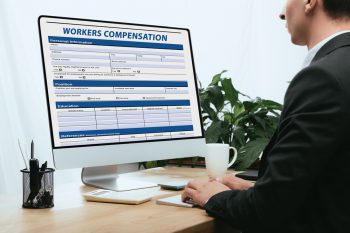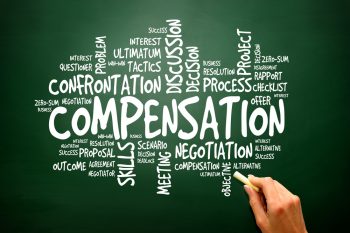What do I do when my employer refuses to pay for my medical costs?
Workers’ compensation is a “no-fault” insurance program that benefits employees who suffer job-related injuries or illnesses.

What Is Worker’s Compensation?
Workers’ compensation is a “no-fault” insurance program that provides the following benefits to employees who suffer job-related injuries or illnesses. An injured employee will receive benefits regardless of who was at fault. In exchange for these benefits, the worker cannot bring a civil action against the employer for pain and suffering or other damages, except in cases of intentional acts.
Worker’s Compensation includes:
- Ensuring that injured workers receive fair and timely workers’ compensation benefits from their employers and their insurance carriers
- Enforcing the law requires employers to secure the necessary insurance coverage from commercial carriers or through self-insurance programs.
- Providing temporary disability benefits and medical expenses to workers suffering from compensable injuries while working for uninsured employers
- Providing benefit payments to workers who are already partially disabled who subsequently experience a work-related injury which together, render them totally disabled.
What Should I do if I am Injured?
You should notify your employer as soon as possible. The notice may be given to your supervisor, personnel office, or anyone in authority at your place of business. The notice does not have to be in writing. If you need medical treatment, a request should be made to your employer as soon as possible. Under the NJ workers’ compensation law, the employer and/or their insurance carrier can select the physician(s) to treat injured workers for work-related injuries.
What is the Employer’s Responsibility After the Injury?

What Are The Benefits of Worker’s Compensation?
Medical Benefits
All necessary and reasonable medical treatment, prescriptions, and hospitalization services related to the work injury are paid by the employer’s insurance carrier or directly by the employer if they are self-insured.
The employer has the right to designate the authorized treating physician for all work-related injuries. Only in the situations where the employer inappropriately refuses to provide medical treatment or if an emergency exists may the injured worker choose the treating physician. In the case of the latter, the injured worker should notify the employer as soon as possible concerning the treatment being received.
Temporary Total Disability Benefits
Benefits are usually terminated when the worker is released to return to work in some capacity or if he or she has reached maximum medical improvement (MMI). MMI is a term used when additional treatment will no longer improve the medical condition of the injured worker. The worker, in some cases, may be left with either partial permanent injuries or total permanent injuries, details of which are addressed in the next two sections.
Permanent Partial Benefits
When a job-related injury or illness results in a partial permanent disability, benefits are based upon a percentage of certain “scheduled” or “non-scheduled” losses. A “scheduled” loss involves arms, hands, fingers, legs, feet, toes, eyes, ears, or teeth. A “non-scheduled” loss involves any area or system of the body not specifically identified in the schedule, such as the back, heart, and lungs. These benefits are paid weekly and are due after the date temporary disability ends.
Permanent Total Benefits

Monmouth County Workers Comp Attorneys here to Help You if Your Employer Refuses Coverage
At the first sign of trouble, you should contact an attorney. At Chamlin, Uliano & Walsh, our experienced team of lawyers has the skills and know-how to help you with your injury claim. We have a thorough understanding of the New Jersey workers’ compensation system. We know how to ensure your rights are fully protected at every step in your case. Contact us by filling out our online form or call our Monmouth County office at 732-440-3950. We look forward to hearing from you.
